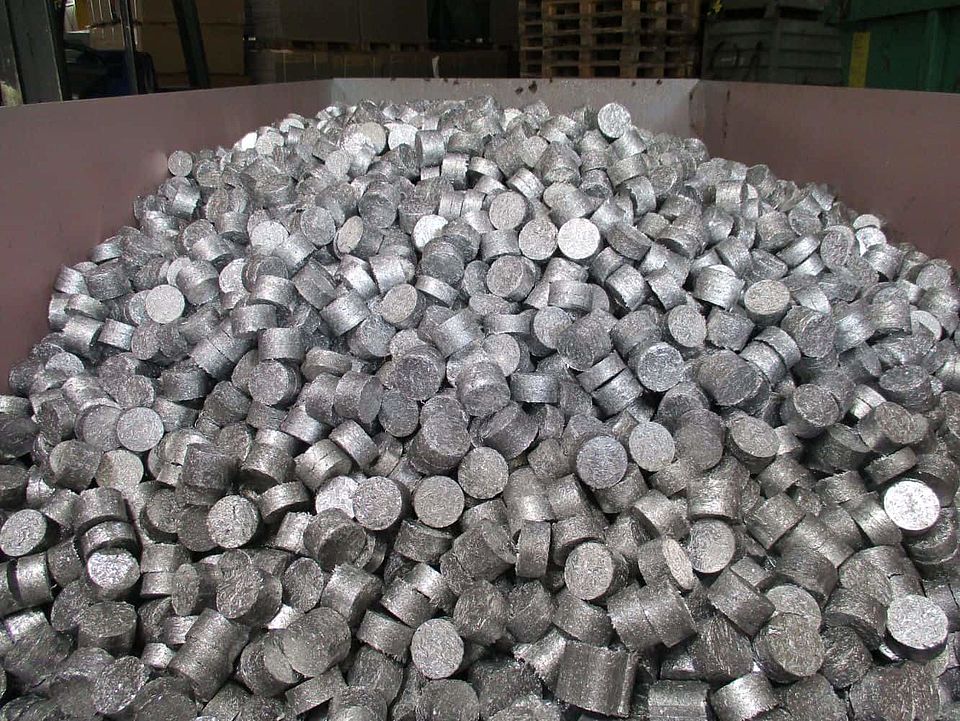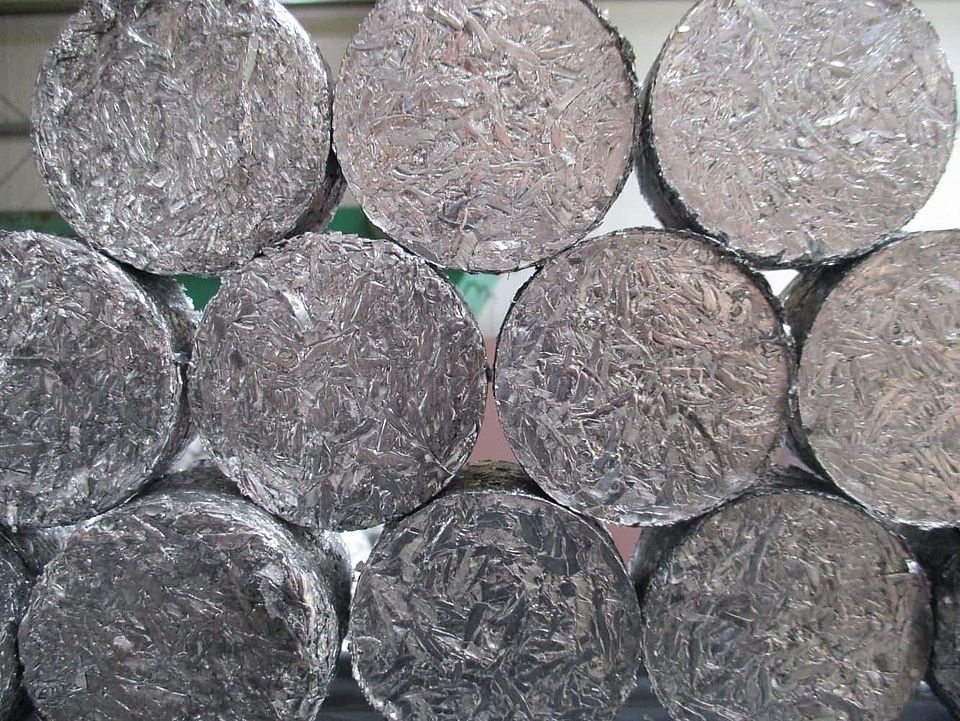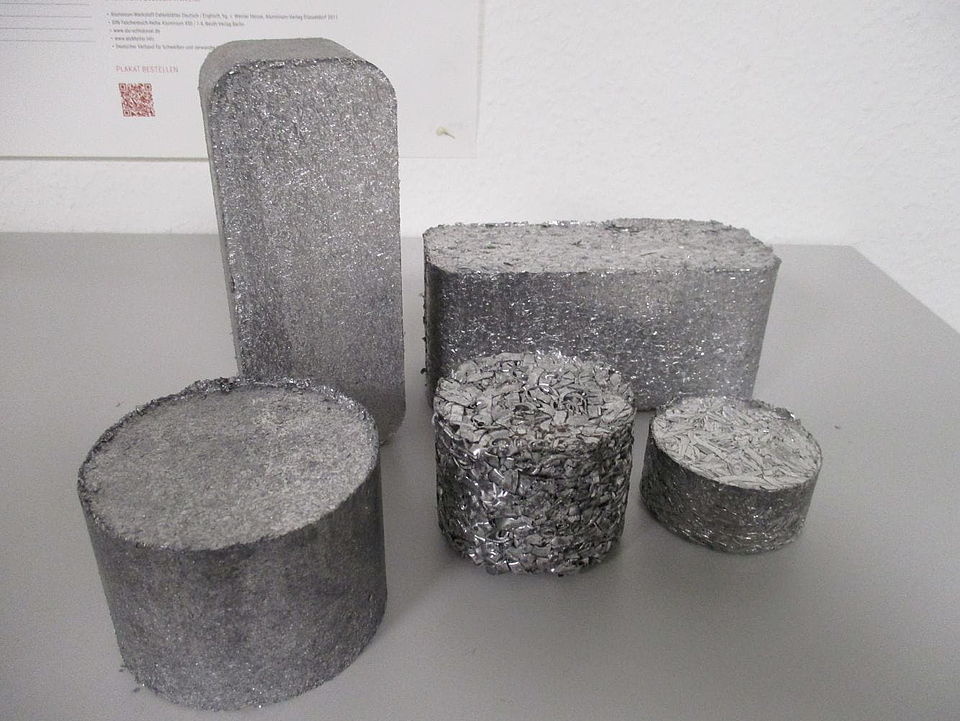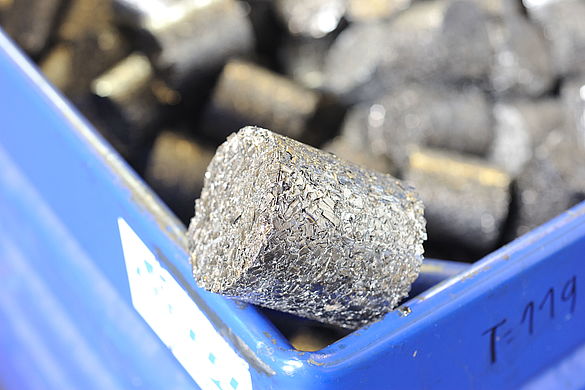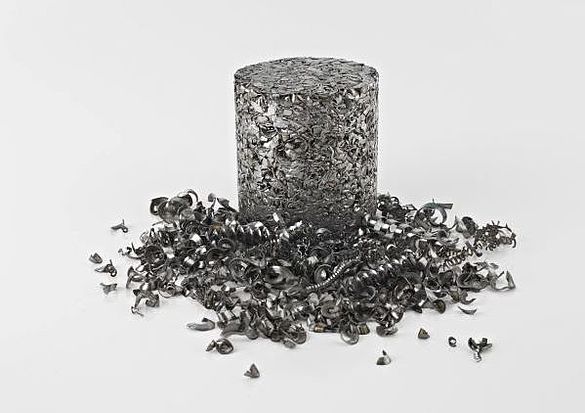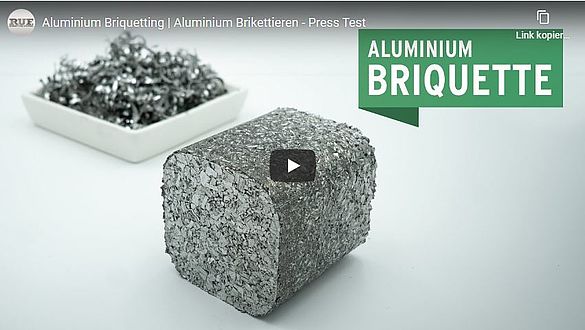Aluminium is scare at the moment; the price has risen sharply this year. However, using circular economy models made possible through high quality briquetting presses from RUF, model builders and mold makers as well as other aluminium processing companies can cut costs and secure material replenishment.
Machining companies know the problem: The majority of their expensive semi-finished products become chips during the milling process. And while these are valuable secondary raw materials, they only achieve revenues from scrap merchants which lie way under the price of the semi-finished products. Furthermore, it is currently particularly difficult to get the required amounts in the first place. This drives up material costs and makes planning extremely difficult.
However, an innovative German semi-finished products supplier has developed an alternative for their customers: a genuine circular economy model in which high quality RUF briquetting presses play a central role.
The companies which they supply with semi-finished aluminium products are offered the opportunity to have their aluminium scrap from production, for example with an alloy AlMg4.5Mn, picked up, separated by type. This means that the original alloys are retained during subsequent melting, which in turn means high quality semi-finished products can be reproduced in the original quality.
The semi-finished product supplier then credits the returned aluminium scrap to the machining companies in a material account. So, they receive the same amount of new material for the returned aluminium scrap, minus the slight material loss caused by melting, and they only have to pay a reworking surcharge rather than the usual price. The bottom line is that the companies pay between 300 and 500 euros less per ton than they would pay if they sent the residues to a scrap merchant and purchased new material with the proceeds. In addition, the normal fluctuations in metal prices are avoided, contributing to a much more predictable calculation.
There is a prerequisite; and that is that the processors press the aluminium residues into high quality briquettes before they are returned. The semi-finished products supplier has recognized that briquetting with RUF presses is the best method, when dealing with aluminium chips produced in their own company during preprocessing. Afterwards the briquettes are largely free from clinging residues of cooling lubricants, and they occupy only a fraction of the volume of the chips. The density of the chip briquettes at 2.3 kg/l is not far removed from the density of solid aluminium at about 2.7 kg/l. And at the smelting plant the briquettes have a consistent residual moisture rate of under 2 %. In contrast to loose chips or badly pressed briquettes, almost nothing is lost in burn-off during melting.


